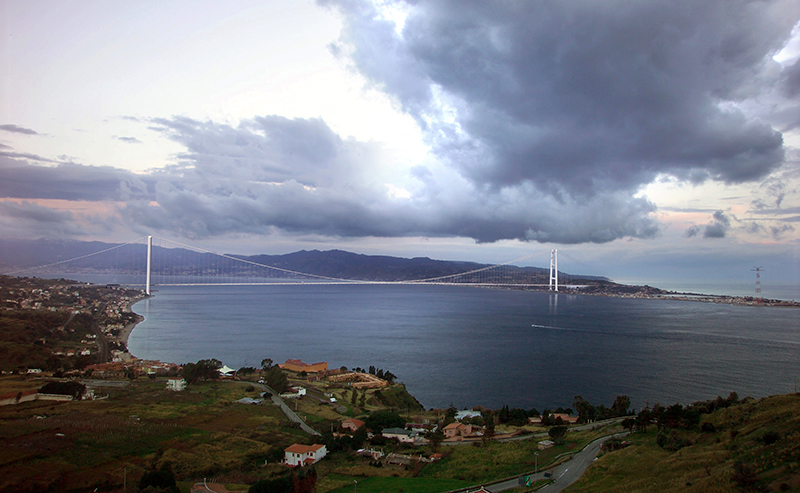STRETTO DI MESSINA, CEO CIUCCI: “THE BRIDGE IS A LOCAL PROJECT THAT WILL BENEFIT THE LOCAL AREA”
Messina, Villa San Giovanni, 10 August 2024 – “Any peaceful demonstration is legitimate, as expressing one’s opinion is never wrong and Stretto di Messina is always open to dialogue and engagement,” said Pietro Ciucci, the Company’s CEO.
“But the long queues registered at the Villa San Giovanni embarkation points, on this peak holiday Saturday, show everyone the importance of having a continuous link between the two shores that is open 24/7, 365 days a year. The impact the project would have on reducing journey times and costs is obvious.
“Unfortunately, the usual claims made without any technical or scientific basis, aimed at sowing confusion and generating non-existent doubts, continue to be repeated. A project that has been feasible for 20 years, designed by the world’s leading experts in suspension bridges and major infrastructure, is being challenged. Every possible issue has been addressed, studied and dealt with, including transit by the largest ships and heaviest freight trains, as well as resistance to violent earthquakes, and tsunamis and winds that have never been recorded in the Strait. Innovative protocols will be put in place to tackle infiltration by organised crime. Extraordinary measures have been taken to protect the environment, which have never been implemented for any public works project. The Company works diligently and in full compliance with the regulations, listens to local demands and is in constant dialogue with local authorities. The “Bridge” project will create a scientific hub in synergy with local universities, and facilitate professional vocational training for the required job profiles. With regard to the sensitive issue of the necessary compulsory purchase orders, procedures have been put in place that go far beyond legal requirements, and are designed to take people’s needs into account as much as possible. Every possible precaution has been taken in order to as far as possible reduce any inconvenience caused during construction, including with regard to meeting water needs, but the aim is to eliminate disruption entirely. As far as the water supply is concerned, the construction sites will be completely self-sufficient, and will place no burden whatsoever on public water resources. Together with the General Contractor, Stretto di Messina has studied different supply systems: well construction, desalinators and the reuse of industrial water. Obviously, the solution adopted will be agreed with the authorities, enabling efficient coverage of the construction sites’ requirements, and also guaranteeing a water surplus for the benefit of the community. When completed, the project will form part of local heritage.
“The bridge will be included in the trans-European Scandinavian-Mediterranean corridor, which will enable high-speed trains to reach Sicily and make the sea crossing in minutes rather than hours,” continued Mr Ciucci. “And it is curious, to say the least, that the date of the demonstration was set for a peak holiday Saturday, with Villa San Giovanni suffocated by endless queues of vehicles that at times stretched back to the motorway.”
“The bridge is a local project that will benefit the local area,” concluded Mr Ciucci. “It will also include a metropolitan railway with three metro stops and the extension of Messina’s motorway bypass to Ganzirri, with two new junctions at Sant’Agata and Granatari. It will belong to the people who live on both sides of the Strait. And also to those who took to the streets today.”

